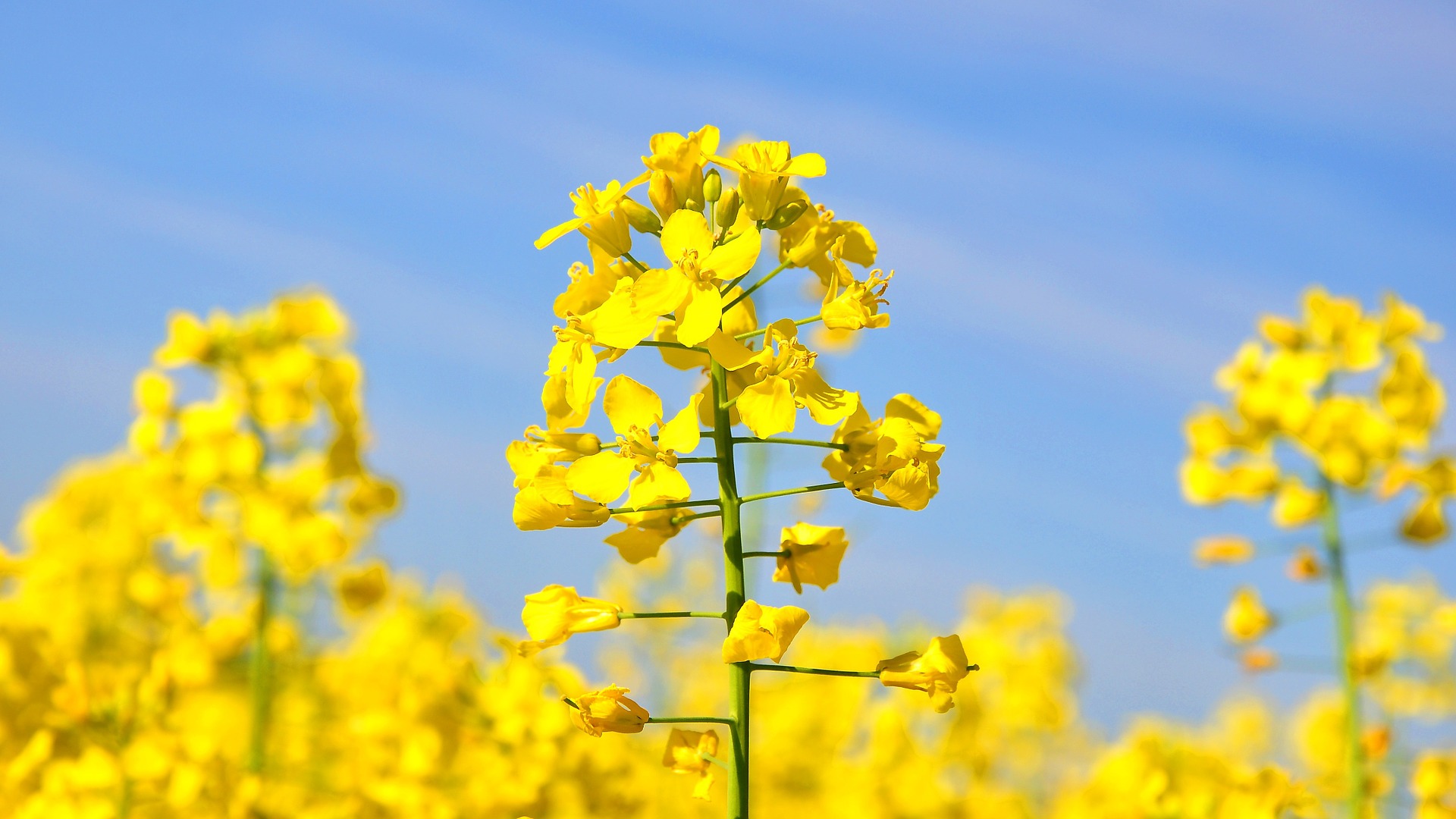China's Canola Search: New Sources After Canada Rift

Table of Contents
The Canada-China Canola Dispute
The Canada-China canola trade dispute is a complex issue rooted in both political tensions and alleged quality concerns. Accusations of contamination in Canadian canola shipments, alongside broader diplomatic fallout between the two countries, led to significant trade restrictions and import bans on Canadian canola. This represents a major blow to Canada's agricultural sector and its economy.
- Timeline of key events: The dispute escalated significantly in 2019, with initial investigations into alleged contamination followed by import restrictions and subsequent appeals.
- Volume of canola previously imported from Canada: Before the dispute, Canada supplied a substantial portion of China's canola imports, amounting to millions of tons annually. This represented a critical component of Canada's agricultural exports.
- Impact on Canadian farmers and the Canadian economy: The loss of the Chinese market dealt a severe blow to Canadian canola farmers, impacting their livelihoods and the overall Canadian agricultural economy.
- Retaliatory measures taken by Canada: Canada initiated dispute settlement procedures through the World Trade Organization (WTO), attempting to address the trade restrictions imposed by China.
Exploring Alternative Canola Suppliers
Faced with a significant reduction in Canadian canola imports, China has actively sought alternative suppliers. This has involved a complex process of evaluating production capacity, quality standards, logistical challenges, and political relationships with potential partners. The search for import diversification has led to increased engagement with several countries:
- Australia: Australia has emerged as a key alternative supplier, increasing its canola exports to China to meet the growing demand. However, Australia's production capacity may not fully compensate for the lost Canadian supply.
- Ukraine: Ukraine, a significant global producer of canola, has also seen increased demand from China. However, geopolitical instability and logistical issues present challenges for increased exports.
- Russia: Russia, another major canola producer, has also sought to increase its exports to China. However, similar to Ukraine, logistical complexities and potential political factors influence the volume of exports.
- Brazil: Brazil's canola production is relatively smaller compared to other potential suppliers, limiting its ability to fill the gap left by Canada.
- Trade agreements and negotiations: China has been actively negotiating trade agreements and improving relations with various countries to secure stable and reliable canola supplies. This involves discussions on quality standards and other trade-related issues.
Impact on Global Canola Market and Prices
The Canada-China canola rift has created significant volatility in the global canola market. The disruption of supply chains and shifting demand have led to price fluctuations, affecting both producers and consumers globally.
- Impact on global canola prices: The reduced supply from Canada initially led to an increase in global canola prices, benefiting alternative suppliers but impacting importing countries.
- Changes in market share: The dispute reshaped the global canola market share, with Australia, Ukraine, and Russia gaining market share at the expense of Canada.
- Increased competition among alternative suppliers: The increased demand has created competition among alternative suppliers to secure contracts and increase their exports to China.
- Long-term implications: The long-term implications remain uncertain, with potential for greater price volatility and a restructuring of the global canola trade landscape.
The Role of Domestic Canola Production in China
In response to the disruption of imports, China has also focused on increasing its domestic canola production to enhance food security and reduce its reliance on imports. This involves significant investments in agricultural technology and policy changes.
- Current levels of domestic canola production: While China has increased its domestic canola production in recent years, it still falls significantly short of meeting its domestic demand.
- Government policies aimed at boosting domestic production: The Chinese government has implemented various policies to improve yields, including subsidies, research investments, and land allocation for canola production.
- Challenges and opportunities in increasing domestic yields: Challenges include climate variability, land availability, and improving crop yields through advanced agricultural practices.
- Potential for China to achieve greater self-sufficiency: While achieving complete self-sufficiency remains a long-term goal, increased domestic production will reduce China's dependence on imports and enhance its food security.
Conclusion
China's search for new canola sources after the deterioration of its relationship with Canada highlights the complexities and vulnerabilities within the global agricultural trade system. The impact reverberates beyond China, affecting alternative suppliers, global canola prices, and international relations. The evolving dynamics of this situation underscore the need for robust supply chains and diversified sourcing strategies. The evolving situation surrounding China's canola imports demands continued monitoring. Stay informed about developments in China's canola search and the future of global agricultural trade. Further research into the specifics of China's canola import strategy is crucial to understanding future market trends and price fluctuations in canola and other agricultural commodities.

Featured Posts
-
 Bodycam Video Shows Dramatic Rescue Of Toddler Choking On Tomato
May 10, 2025
Bodycam Video Shows Dramatic Rescue Of Toddler Choking On Tomato
May 10, 2025 -
 Wynne And Joanna All At Sea A Comprehensive Guide
May 10, 2025
Wynne And Joanna All At Sea A Comprehensive Guide
May 10, 2025 -
 Trumps Transgender Military Ban Fact Vs Fiction
May 10, 2025
Trumps Transgender Military Ban Fact Vs Fiction
May 10, 2025 -
 Open Ai Facing Ftc Investigation Analyzing The Potential Consequences
May 10, 2025
Open Ai Facing Ftc Investigation Analyzing The Potential Consequences
May 10, 2025 -
 Bert Kreischers Controversial Netflix Jokes His Wifes Perspective
May 10, 2025
Bert Kreischers Controversial Netflix Jokes His Wifes Perspective
May 10, 2025
